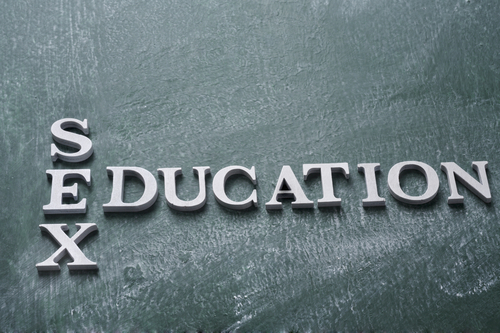
The World Health Organisation (WHO) (2006) definition of sexual health states that the “…the sexual rights of all persons must be respected, protected and fulfilled.” The implementation of this important statement sits uneasily with what many have observed about the attitudes of some disability services providers, families, carers and the broader community about sex and relationships for people with learning disabilities.
Writing in the introduction to the recently published “Sexuality and Relationships in the Lives of People with Intellectual Disabilities” (Chapman, R. et al, 2014), Rohhss Chapman states that it is an ‘everyday notion’ to view sex and relationships for people with learning disabilities as ‘highly problematic’.
The pervasiveness of negative, paternalistic or fearful attitudes potentially shape the way in which information and support are provided to both children and adults with learning disabilities about sex and relationships. People with learning disabilities are more likely to experience sexual abuse than their non-disabled peers (Hughes et al, 2012), and there is evidence to suggest that their often low levels of knowledge about sexuality and relationships can impede their recognition of abuse situations, understanding of practical information about safer sex and the development of positive attitudes to sexual expression (Schaafsma et al, 2014).
The development of sexuality education programmes in this context is difficult – are they designed to inform, to protect or a combination of the two? Do they seek to make the sexual rights of people with learning disabilities as defined by WHO a reality?

Are sexuality education programmes designed to inform, to protect or a combination of the two?
Method
Schaafsma at al (2014) have undertaken a systematic review of published studies which investigated the effectiveness of sex education programmes and educational materials specifically developed for people with mild or moderate learning disabilities. A literature search identified 20 such studies. The authors then examined the approach and reported outcomes outlined in each study.
Results
- All of the studies included in the review were ‘geared towards’ the improvement of participants’ knowledge, skills and/or attitudes towards sexuality-related topics and included a range of strategies including role-play, guided practice, rehearsal, discussion and the checking of knowledge through tests and questionnaires.
- The authors note that the descriptions of both the topics included in the sex education programmes and the techniques used to teach or share them were ‘very broad and generic’.
- Their results also found that across the studies there was ‘no support’ to demonstrate that the programmes had been developed systematically or on the basis of theory or evidence.
- Across the studies, there were reported improvements in the sexual knowledge of participants and in a number of studies focusing on self-protection skills, participants were able to describe and role-play protective steps after training.

Programmes had not been developed systematically or on the basis of theory or evidence
Discussion
The review raises a number of really important questions about sex education programmes for people with learning disabilities. The authors found that in some of the studies they examined the programmes had been effective in improving participants’ knowledge and skills. It is difficult to know whether the skills taught would be generalizable by the participants to ‘real life’ situations outside the programme and this reflects a major weakness in their design. It is of course not easy to design ‘in situ’ tests for many of the kinds of skills taught in a sex education programme but the authors argue that more creative strategies need to be employed, particularly in checking understanding about self-protection strategies.
There was a lack of detail about this problem and about the basis, goals and specific design of the programmes. Where these key features are described in ‘broad and non- specific’ ways it becomes impossible to effectively map or evaluate their effectiveness. We need to know both the ‘what’ and the ‘why’ in sex education programmes for people with learning disabilities – what is included in the programme and why it is included; specific goals developed with an evidence base.
What seems unsurprising about Schaafsma et al’s (2014) review is their finding that the majority of studies focussed on ‘protection’ and ‘prevention’. It is strong reflection of some of the anxiety which seems to exist around the question of the sexuality of people with learning disabilities and some of the paternalist approaches which accompany it. Much of the content of these programmes dealt with developing participants’ self- protection skills and ‘sexual knowledge’.
These are of course extremely important but there is at the same time a disappointing lack of attention given to supporting individuals to engage in programmes which seek to promote the development of healthy, positive sexual relationships and here, the lack of attention given to strategies such as the involvement of peer educators and self-advocates in providing an important link to the lived experience of people with learning disabilities becomes clear. Schaafsma et al (2014) are right to ask why so much detail is missing from the published programmes and to argue for a re-examination of what is being presented and its impact on the lives of participants.

There is disappointing lack of attention given to supporting individuals to engage in programmes which seek to promote the development of healthy, positive sexual relationships
Link
Schaafsma, D., Kok, G., Stoffelen, J., Curfs, L. (2014) Identifying effective methods for teaching sex education to individuals with intellectual disabilities: a systematic review. Journal of Sex Research, 0(0), pp 1-21.
References
Chapman, R., Ledger, S., Townson, L. (Eds.) with Docherty, D. (2014). Sexuality and relationships in the lives of people with intellectual disabilities, London: Jessica Kingsley.
Hughes, K., Bellis, M., Jones, L., Wood, S., Bates, G., Eckley, L., McCoy, E., Mikton, C., Shakespeare, T. & Officer, A. (2012). Prevalence and risk of violence against adults with disabilities: a systematic review and meta-analysis of observational studies. Lancet, 379, issue 9826, pp. 1621–9.
World Health Organisation (2006). Sexual health document series. Defining sexual health. Report of a technical consultation on sexual health, 28-31 January 2002. Geneva: WHO Press.

RT @LearningDisElf: Sex education programmes focused on ‘protection’ and ‘prevention’ with little attention given to supporting peopl… ht…
Are sexuality education programmes designed to inform, to protect or a combination of the two? http://t.co/eUBHkRJPPB
Sex education focussing on protection & prevention doesn’t support people to develop healthy, positive sexual relationships: @LearningDisElf
The @LearningDisElf piece puts me in mind of today’s @BBCwomanshour feature on autism & sex: focussed on carer’s concerns & protection.
@LearningDisElf individuals with disabilities are not viewed as equals therefore not counted in the ‘all persons’ disgraceful in this age.
Sara-Marie Evans liked this on Facebook.
Promoting the development of healthy, positive sexual relationships in people with learning disabilities http://t.co/eUBHkRJPPB
@LearningDisElf @BPSOfficial I have been researching the role of AAC and accessible communication. Thanks for giving me some more info!
The Learning Disabilities Elf liked this on Facebook.
Don’t miss: Sex education programmes for people with learning disabilities http://t.co/eUBHkRJPPB
Suzanne Douglas liked this on Facebook.
Catriona Elen McIntosh liked this on Facebook.
Much more consideration and debate is needed regarding what constitutes evidence of sexuality education approached for people with learning disabilities. Mainstream sexuality education for young people is moving away from teaching rules to exploration of the social and ethical issues of sexual relationships which also enables education about sexual health. Approaches including peer education as noted by Sian in her post are being used now in mainstream programs and are developing in work with adults with learning disabilities. An Australian program that was co- developed with women with learning disabilities Living Safer Sexual Lives: Respectful Relationships was a finalist last week in the national disability awards.
Don’t miss the discussion about sex education programmes for people with learning disabilities http://t.co/eUBHkRJPPB
@Laurengriffo13 “@LearningDisElf. sex education programmes for people with learning disabilities http://t.co/Zqd3C3TaXb“
Sian Anderson looks at a review of literature which looks at the effectiveness of sex education programmes and… http://t.co/S4JFWmKehH
Sex education programmes focused on ‘protection’ and ‘prevention’ with… http://t.co/5xFm36r9Gf via @LearningDisElf http://t.co/TlPEBv3T7Y